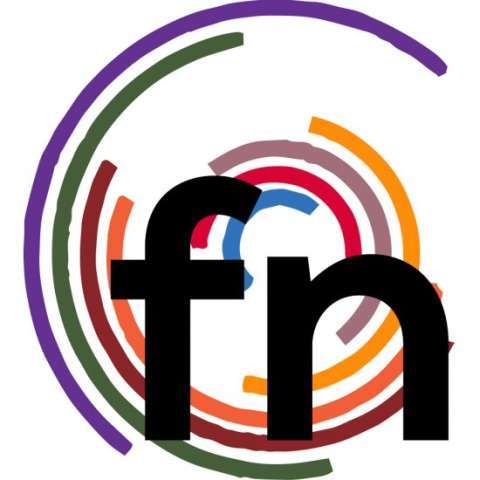"If you think breaking even is alright, you are doomed for failure."
The themes for events cover a wide range, but most of these special events have an underlying purpose: to raise money. While this commercial aspect may bother some purists, there's no getting around the fact that events are excellent fundraisers that also raise awareness. All kinds of good causes can be helped including nonprofit organizations, local businesses, community members, and more. There are so many ways to help your community whether it is an in-person event or a virtual fundraising event! In addition, some of the money generated can be set aside for your next fundraising event. For many groups, the question is simply: What's the best way to raise money? There is no quick answer. What might help is to look at some of the fundraising techniques used by other event promoters.
Selling Booth Space
This is one of the most popular, effective, and fun fundraising event ideas, particularly with arts and crafts shows. No two groups seem to do everything the same, however. Many just sell a designated space and let the exhibitor provide everything else: display tables, backdrops, and chairs. Some groups supply these things and still, others include electricity or even a tent over the booth. These different factors (along with projected attendance) influence booth fees as does the size and location of the spaces. In short, booth fees vary greatly from event to event.
Most groups collect these fees well in advance, usually at the time an exhibitor applies for space. They've also found that a strict refund policy is a good idea. It's one way to insure that exhibitors reconsider before canceling at the last minute.
Percentage of Sales
Several organizations don't stop with making money from rental space; their contracts with exhibitors stipulate that a certain percentage of sales-frequently 10 to 20%-be returned to the event organization. If the 'cut' is kept reasonable and crowds show up, exhibitors don't seem to mind sharing their proceeds.
This approach is not without its problems. Bookkeeping headaches can be expected, along with occasional doubts about the accuracy of sales reports. The success at your special event to raise money though is beyond question.
In-Kind Donations
Encourage in-kind donations of materials, supplies, and services instead of money. Assess each in-kind contribution and keep a record of what the cost would have been if you had paid for it out of pocket.
Food and Beverage Sales
At traditional fundraising events, people consume vast quantities of popcorn, hot dogs, cotton candy, and drinks. Most event organizers do not need to be reminded of this. Their job is to figure out how to make the most of this demand.
Promoters can handle the food/beverage matter in two ways:
-
selling the refreshments themselves
-
allowing someone else to sell food and drinks on a concession basis
Many groups lean toward the former, but unless they have the necessary equipment and a good crew of tireless volunteers, they may be better off working with an experienced concessionaire. Organizers know the food and beverage business is closely regulated by the Dept. of Health. Selling hot dogs, for instance, involves much more than placing a hot frankfurter in a steamed bun.
Requirements governing the floor, walls, doors, ceiling, and windows of concession stands exist and must be followed (for details, see the chapter on food and beverages).
Souvenir Sales
Event-goers are frequently on the lookout for souvenir items. A lot of people have an apparent need to remind themselves (and friends) of their participation in any fundraising event, so they purchase ball caps, T-shirts, plastic cups, souvenir programs, and other mementos. To take advantage of this element of human nature, festival organizers need to keep several things in mind.
The Target Audience
A key thing to remember is that different groups have different tastes. What may sell exceedingly well at a typical 'funfest' may not move at all during an arts and craft fair.
Ordering the Souvenirs
Unless a silkscreen machine is in their possession, most groups have to order their commemorative souvenirs. Many of the firms handling this sort of merchandise can be found under 'advertising specialties' in the yellow pages of a larger city's telephone directory. While these companies can supply a wide range of items, they are governed by certain practices:
-
Minimum orders are a necessary part of business
-
Camera-ready art is strongly recommended. If the specialty firm has to prepare the artwork, costs go up and so do the time requirements
-
Production takes time. Depending on the item ordered, the delivery may take from 10 days to six weeks.
Paying for the Merchandise
Even though the group may be able to sell dozens and dozens of shirts at a 100% markup, paying for them can be a problem. Here's why. For the organization that is a first-time customer, the wholesaler will very likely require that 50% of the costs be paid at the time of the order, with the remainder due within 10 days of delivery. Established customers may be able to work out better deals.
Races
Many groups are cashing in on the jogging/running craze by sponsoring 5 or 10K races. For a modest entry fee ($5 to $10), runners participate in these events, and in return expect two things: a well-organized race and a commemorative T-shirt or hat.
Admission Fee
This method can work provided two requirements are met:
-
the grounds are somehow enclosed so that admission can be effectively controlled
-
the event's attractions are clearly worth the price of admission.
If these conditions can't be met, it's probably unwise to consider an admission charge.
Parking Charges
The same rules apply here that govern admission charges.
In summary, while it is great to raise money through events, fundraising should not be overcome by commercialism.
* * * * *
This article was originally written for Larry Ward's Fair, Festival & Event Promotion Handbook.
Photo: Kate Trysh



